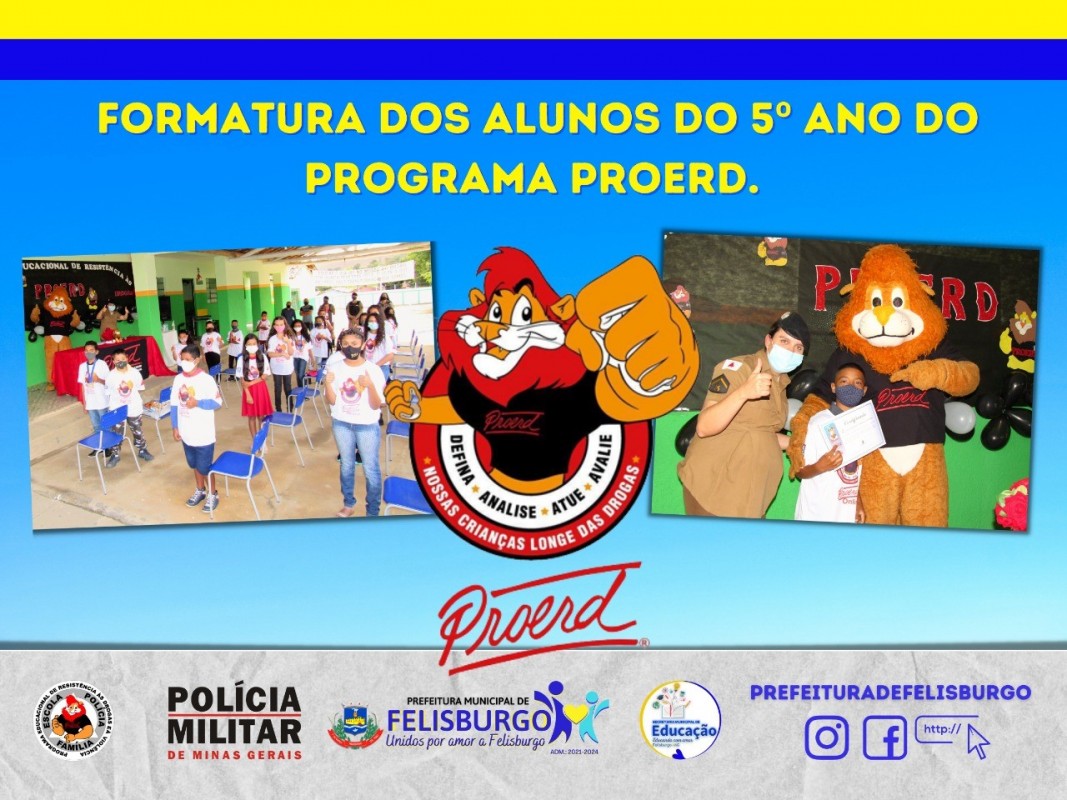Previous studies conducted in other Brazilian states—as well as in other parts of South America and the world —have reached the same conclusion: the Drug Abuse Resistance Education programme fails to prevent drug use among children and teenagers.
Two recent studies published in the International Journal of Drug Policy and in Prevention Science show that PROERD – Caindo na REAL, the Brazilian version of “D.A.R.E. keeping it REAL” Programme, has failed in preventing children and teenagers from using banned drugs. The research conducted in 30 schools in the city of São Paulo shows that attendance to the programme, which is conducted by the Brazilian Military Police, does not have a positive impact in reducing the use of alcohol, tobacco, and controlled substances among pupils. Moreover, the study concludes, attending the programme might actually foster greater curiosity and risk-taking among pupils, leading them to try the very substances that PROERD tries hard to demonise. The programme has been offered in São Paulo for almost 3 decades, and was made mandatory in state schools in 2019 by the right-wing governor João Doria.
From DARE to PROERD
The DARE Programme was created in Los Angeles, California, in 1983. Since then it has been marketed to several countries, including the UK. In 1992, seven US police officers offered a course on the DARE Programme to Brazilian Military Police officers in the state of Rio de Janeiro. A national version of the programme soon followed. It was named PROERD (Programa Educacional de Resistência às Drogas, in Portuguese). This tropical version of the infamous, Nancy Regan inspired “Just Say No” programme brought Military Police uniformed officers—pistol in holster and handcuffs included—to the classrooms of 5th and 7th graders to teach them about the harms caused by using drugs. The aim was and still is to prevent children and teenagers from using banned substances. Just like its American counterpart, the first iteration of the Brazilian programme was a total failure.
In 2009, after being subject to a lot of criticism, the US project was reformulated and changed its focus from the harm that may be caused by certain substances to impacting the attitudes of children and teenagers, targeting peer pressure and the desire to belong. In order to mark this transformation, it was renamed to DARE – Keepin’ it REAL (Refuse, Explain, Avoid and Leave). Following this change in the original programme, the Brazilian version was relabelled PROERD – Caindo na REAL in 2013. No matter its rebranding, the programme kept failing to achieve the objective of preventing drug use among children and teenagers.
According to the authors of the studies analysing the implementation of PROERD – Caindo na REAL in São Paulo, the programme kept failing Brazilian school kids due to problems with cultural translation. The contents of the curricula were translated into Portuguese, but the activities and examples that they brought were not localised, compromising the appeal and efficiency of the programme in its tropical version. As an anthropologist, I feel tempted to tackle this argument on cultural translation. This is not the space to proceed with this critique, though, and, more important; from my point of view, the problems with PROERD lie elsewhere.
We Need Emancipatory Drug Education
It is important to notice that both DARE and PROERD are projects geared towards abstinence. The educational component of their curricula focuses on attitudes about drug use, and not on knowledge on substances, their effects and the sociocultural histories of their uses. Children who attend the programme have no idea about the histories of drug policy in Brazil or how it is articulated within the global context of imperialism. They do not learn how policy, legislation and law enforcement have been historically mobilised and weaponised to control populations; how the war on drugs promotes the mass incarceration of Black and brown people both in their country and across the globe. They will not learn that almost 60% of women doing time behind bars in Brazil are being punished for the possession of a derisory amount of a banned substance.
Drug Education is urgently needed in Brazilian schools, but not the fear-mongering sort of sentimental education developed by the Military Police through PROERD. What we really need is to enact a pedagogy of emancipation that will allow pupils to develop a critical understanding of drug use and drug policies. Investment in capacity building for schoolteachers and support for development of interdisciplinary projects are real alternatives for PROERD. Instead of a “Just say no” approach, what we really need is “Just say know”. We can have our geography teachers investigating the material and environmental damage of the drug wars with their pupils. History and sociology teachers can engage in investigations on racism, classism, and policymaking. Philosophy teachers can enquire how morality and ethics influence the debates on prohibition and legalisation. The numbers of the drug wars can be useful for teaching mathematics: how many hospital equipment or school meals could be purchased with the money spent on ineffective prohibitionist violence? And how do narratives, news, gossips, and conversations about drugs and people who use them can create stigma? How do we build and practice a more inclusive, respectful language? Language teachers can certainly tackle these last two problems. Arts teachers could investigate the visual representations of drugs and people who use them in the media and propose better alternatives to the generally stereotyped images that follow written texts.
Only by preparing professional educators with the right knowledge can we build a proper curriculum for drug education. This curriculum must address the structural causes of problematic drug use and the violence associated to drug markets: racism, colonialism, never-ending militarisation, and social control. Only then can we call the approach to drugs in schools an “education”. For as long as DARE remains the pedagogical tool for teaching kids about drugs, we cannot call it anything but copaganda.


